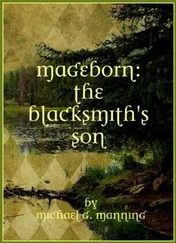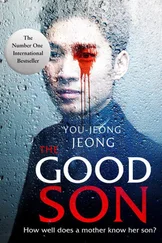“They are not proper Muslim states. They are allied with America, and they don’t follow sharia law.”
“Tell me, what is the year?”
“What do you mean?”
“The year! What is the year, counting from the hegira?”
“It is 1429.”
“Yes, and why do we count from the hegira?”
“Because it is when the Prophet, peace be upon him, fled with his followers from Mecca to Medina.”
“Yes. Don’t you find it interesting that the birth of Islam is counted from a retreat? Not from a victory, not from the victory at Badr or at Ohod or from the conquest of Mecca, but from a retreat. Why do you suppose we do that, Patang?”
The boy is mute, baffled, and so she continues.
“Because the Prophet, peace be upon him, was reluctant in the highest degree to shed human blood. He did not form a secret society in Mecca to assassinate idolaters and their women and children and burn down their homes. Instead he retreated to a place of safety. And even when the idolaters attacked the Muslims at Badr and God gave the faithful their victory, the Prophet, peace be upon him, released all his prisoners after the battle and warned his followers not to molest the harmless or destroy their dwellings or their means of livelihood. And this was when Islam was a mere handful of families, not a billion people and two dozen nations. No, child, you ride the black horse of pride, you and your Idris Ghulam, and it will lead you to the flaming pit. Your father warns you from Paradise. God warns you. Heed the Prophet, peace be upon him; ride his horse on the narrow path. Thus says the Prophet, peace be upon him: ‘He will not enter Hell who hath faith equal to a single grain of mustard seed in his heart; and he will not enter Paradise, who hath pride equal to a single grain of mustard seed in his heart.’ ”
“That is not true!” the boy shouts. “Why should I believe you? You are a foreign woman and a witch!”
“I am not a witch,” says Sonia. “You asked how I knew of your dream. I could have lied and put fear in you and say I divined it with the help of the djinn, but God hates liars, and so I say now that I heard you tell your dream to the other guard. But my interpretation is true, as you will see, for you will be wounded on your foot and then recall your father’s words and mine.”
The boy utters a frightened curse and leaves, locking the door behind him.
In the dark, from the other charpoy, Sonia hears Annette stir. “Did we disturb you?” she asks.
“No. What was that all about? The guard didn’t seem too happy.”
Sonia summarizes the conversation. Annette gives an astonished whistle. “Wow! Do you think it’s wise to annoy our guards?”
“The truth is often annoying. Besides, just now it’s our only weapon. I’ve penetrated his self-righteousness, just a little. He sees himself as a holy warrior, which is why he can bear to serve in a unit with men from other tribes, and take orders from men from tribes with whom his tribe or khel has a blood feud. This is how Pashtuns are: they can join briefly against a common enemy, but they always tend to pull apart after that enemy is defeated. That’s what happened in Afghanistan after the Russians left. This so-called jihad is all that holds them together now, so we have to break them of the idea that they are fighting in God’s cause, which of course they are not. Let’s see what happens when young Patang hurts his foot.”
“But what makes you think he’s going to hurt his foot?”
“Because he dreamed it and I interpreted the dream that way.”
“What? That makes no sense.”
“No, not rationally, but we’re not in the rational world here-or in our dreams either. Patang will be thinking about his foot all the time now.
He’ll be extra careful for a while, but it will gnaw at him, he’ll grow clumsy, because, of course, you can’t really do any of the things we normally do with our feet using conscious thought. So he’ll trip and sprain an ankle. Or he’ll become so obsessed with the idea that he’ll unconsciously discharge the tension by ‘accidentally’ dropping a load of bricks on his toes. Then, naturally, he’ll blab the whole thing. Pashtuns are fascinated by this kind of stuff; it’s threaded through all their folk tales-the prophetic dream. We should get some attention after that.”
“My God! Isn’t that incredibly dangerous?”
Sonia laughs softly. “Well, we’re not exactly in the lap of safety as it is. No, first we have to draw their attention to us-to me, actually-as something other than a victim. Once I’m established as that, I’ll have to challenge them from the heart of their religion, which I’ve already started doing with Patang. I told you before, hostage and captive are in a relationship and we have to control the tempo of that relationship, even though we have no power. Think of the Romans and the original Christians. The Romans murdered them for three centuries, and with every murder the Christians grew stronger and the Romans weaker. Why was that? Because their faith allowed Christians to die with nobility, even though they were slaves, and that struck at the heart of the Roman idea of how the world was constituted. Dulce et decorum est pro patria mori. Any belief that allowed a slave to die like a Roman general had to have some underlying reality, so every martyrdom in the arena made a hundred converts.”
“But what if they kill you?”
“Oh, they’re going to kill me. I was doomed from the moment they stopped our convoy. But I’m going to make it hard for them, and maybe that will save some of you.”
Sonia can now make out the shape of her companion across the room. The gaps between the slats in the shutters have gradually become visible as slate-blue strips.
“What do you mean you were doomed?” says Annette. “Why you in particular?”
Sonia laughs again. “Well, maybe that’s an exaggeration for effect. I have a tendency to oversell. It comes from being raised in the circus. Tell me, do you know who Sonia Bailey is?”
“Some kind of explorer, back in the seventies? My roommate in college had her book.”
“Ah, that’s a welcome answer. Let’s hope our friends out there share your ignorance.”
“I don’t understand. What does Sonia Bailey have to do with us? Anyway, isn’t she dead?”
“Not yet. I’m her.”
“You’re Sonia Bailey?”
“Yes. Pleased to meet you. Anyway, it’s not like Superman and Clark Kent, although I try to keep it quiet. Back when I wrote those books I declined the usual celebrity perks: I didn’t give interviews or do book tours, I wasn’t on TV, I didn’t even have an author photograph. The mysterious Sonia Bailey. Obviously, my family knows, and several members of our group here, but for the past thirty years I’ve been Mrs. Laghari, a Pakistani-American therapist, a respectable lady who did not travel the haj to Mecca disguised as a man. If these jokers find out they’ll snuff me like a candle.”
“Jesus!”
“Just so. Crucifixion is one of the traditional punishments for blasphemy, although, for women, chopping them into pieces is more common. On the other hand-”
She stops. A thin wailing has begun outside, hardly distinguishable from the whine of the eternal wind, announcing that the night is ended; it is time for morning prayers. Annette watches Sonia as she washes and performs the ritual gestures and prostrations, so different from her own private, silent, liberal religion.
Sonia finishes the Fajr, the shortest prayer of the day, and becomes aware that the other woman is staring at her. She smiles and says, “It must seem strange to you, this kind of prayer. Primitive?”
Annette blushes. “Yes, frankly, a little. I realize it’s not politically correct, but I tend to be suspicious of highly ritualized religion. It’s too easy to punch in all the rituals and then feel you’re right with God, meanwhile feeling free to be as nasty as you like in daily life.”
Читать дальше












